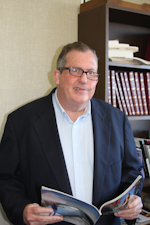Career Satisfaction: Dental hygienists are satisfied, yet still daydream
Overall, dental hygienists are “satisfied” with their career decision. According to a January 2015 RDH eVillage survey, 84% indicated they made the right choice about entering the profession. A slight dip in this high percentage occurs with more recent graduates:
- Graduated in the 1970s, 88%
- Graduated in the 1980s, 86%
- Graduated in the 1990s, 88%
- Graduated in the 2000s, 76%
- Graduated after 2010, 79%
More than 800 dental hygienists participated in the survey, and 90% said they are currently employed in the clinical dental hygiene setting.
You can still participate in the survey by clicking here.
Many workers contemplate leaving their jobs. A late 2013 CareerBuilder.com survey revealed 21% of American workers planned to change jobs in 2014, and only 59% were satisfied with their current jobs.
RDH eVillage asked dental hygienists how often they “think” about leaving their careers. The largest percentage, 22%, said “never.”
An Oklahoma hygienist commented, “I thoroughly enjoy my career and have realized it was what I was meant to do with my life. I do wish I had known that some dentists not only pay well, but offer some important benefits. By that, I mean paid vacation, good bosses, retirement package, etc. The dental hygiene field should be more open about what is going on pay-wise and with benefits so we can band together to ensure we all are getting equal rights from our employers. Again, I would choose dental hygiene, even if I could go back to the beginning. I’d just be less naive.”
Other hygienists, though, flirt with random musings about a career in another field, and do so within these time frames:
- 17% think about a career change on a monthly basis
- 16% on a yearly basis
- 13% on a weekly basis
- 13% on a daily basis
- 9% once a decade
- 2% on an hourly basis
A New York hygienist said, “I really thought that this profession was great because of salary and hours. Now that I need to support myself, and the way the economy is, I’m a working poor person. I work my butt off with low salary, no benefits, and no appreciation. I wish I could do something else and not come home exhausted every night.”
If the right opportunity presented itself to dental hygienists within the next 12 months, would they change jobs?
- 36% said it was “very likely” that they would
- 34% said it was “very unlikely” that they would make the change
- 30% were uncertain
A Florida hygienist said, “After 36 years as an RDH, I still love hygiene. But we work harder now with fewer benefits, and I just need a change.”
Who do dental hygienists talk to when they contemplate a change in their “career paths?” Unsurprisingly, 61% turn to a family member. But other attentive ears could be found with:
- A colleague (20%)
- A best friend (12%)
- Professional coach/mentor (3%)
- A pet (2%)
- Employer (1%)
- A stranger (1%)
The survey’s questionnaire also asked dental hygienists which career paths outside clinical hygiene that they have or would consider. The responses below filtered only the responses from the 90% who currently work in clinical hygiene. The question encouraged participants to include all choices that they have considered.
- Consulting, 22%
- Teaching in an academic institution, 33%
- Research, 20%
- Working for a dental manufacturer or dealer, 29%
- Leaving for a profession outside of dentistry, 44%
- Staying right where you are, 22%
- Entrepreneur, 17%
Write-in responses to the question included:
- Certified health coach
- Office management
- Dental school
- Independent dental hygiene practice, or midlevel provider
- Serving the underserved
- Dental insurance company
- New patient coordinator
- Nursing
- Occupational therapy
- Public or community health dentistry
- Myofunctional therapy
We can only assume that the respondent who said “mow the grass at a cemetery” was being sarcastic.
Upcoming articles will address the survey’s questions about the managerial skills of supervisors, and coping with stress in the dental workplace.








